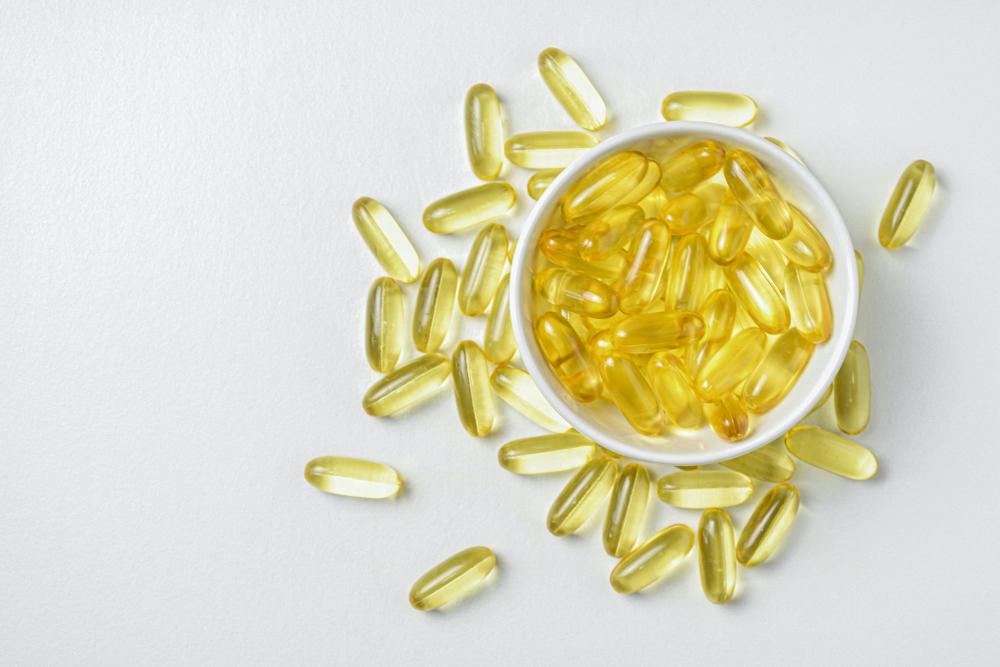Vitamins and minerals that can help you during seasonal change

When seasons change, our bodies must adapt. From shifting temperatures to daylight hours, pollen and circulating viruses, many factors impact immunity and health. Essential vitamins and minerals can help strengthen us. Vitamin D levels often drop in winter with less sun, so supplementing bolsters immunity. Likewise, vitamin C and zinc boost immune health to fight colds. Additionally, probiotics support healthy gut bacteria for overall wellness.
Staying hydrated matters, too. Hot summers, dry air, indoor heat - dehydration lurks across seasons. Remember to drink plenty - water, herbal tea, and soup broth all count. When seasons flux, care for immunity and hydrate. Your body will thank you.
We recommend targeting these vitamins and minerals:
Vitamin D
Vitamin D helps us absorb calcium for strong bones and supports immune health. However, many people become low on vitamin D over the winter with less sun exposure. So, keep taking your vitamin D supplement even as spring rolls around.
We recommend getting 10 mcg daily, especially during autumn, winter, and early spring when deficiency is most common. Maintaining adequate vitamin D is crucial year-round but pays extra dividends in the colder months when our bodies need the boost.
Vitamin C
Vitamin C packs a real antioxidant punch, protecting us from pollution and damage - stuff we face more of when spending summer days outdoors. And that's not all. It turns out vitamin C helps us absorb iron from what we eat, too.
Where can you get it? Citrusy foods like oranges, tomatoes and peppers, and green leafy veggies have reasonable amounts. Popping a supplement works also.
Between battling free radicals as an antioxidant and helping absorb other good-for-you nutrients, vitamin C is crucial for health. If that doesn't make you grab an orange, what will?
B Complex Vitamins
B vitamins activate energy. These key players—B12, B2, B3, B5, and B6—convert food into cellular fuel. Nervous system health hinges on sufficient B vitamins as well. Deficiencies drain energy, leading to fatigue. Many whole foods, like whole grains, meat, dairy, eggs, fish, fruits, and veggies—provide B vitamins. Supplements can fill gaps if you need more dietary B vitamins—a B complex or multivitamin avoids shortfalls.
With abilities to stir up energy and nourish nerves, B vitamins hold mighty roles in well-being. Avoid fatigue-inducing deficiencies by regularly accessing vitamin B sources. Whether through whole foods or supplements, give cells the B vitamins they need to thrive.
Folate
Folate has far-reaching roles in supporting cell growth and development. Both immunity and energy depend on adequate folate, as do emotions. Many foods, like fruits, vegetables, whole grains, meats, and dairy, provide this vital nutrient. Seeking out these folate-rich foods restores the body's diminishing reserves after winter.
For those struggling to replenish, supplements offer another line of defence. With diverse bodily roles, from cell growth to mood support, folate proves critically important. As the seasons shift, ensure ample dietary folate through food sources or supplements if required. Maintain crucial folate levels to traverse the changing terrain from season to season safely.
Iron
Without enough iron, anaemia, fatigue, weakness, and frequent sickness can occur. Meat, seafood, nuts, beans, whole grains, and leafy greens brim with this crucial mineral.
Oxygen transport depends on iron and immune cells, and energetic vitality hinges on its presence. Bone marrow manufactures red blood cells that contain this indispensable nutrient. Whether from nuts, red meat, or spinach, seek iron before allergy season strikes to restore your energy and stay healthy.
Zinc
Zinc enables healthy immunity to help fight infection. This mineral also allows proper taste, smell, fertility, cell growth, and more bodily processes. Meat and shellfish contain high levels, while nuts, seeds, whole grains, and dairy also contribute zinc. Vitamin C intake alongside zinc-rich foods boosts the absorption of this critical mineral. Supplements make up the difference if managing zinc through diet alone falls short.
Taste, smell, and fertility hinge on adequate zinc levels, as do pathways for cell health. Red meats, shellfish, and whole grain dishes help the diet deliver.
Magnesium
Magnesium is an unsung hero, supporting reactions that provide energy and keep our muscles and nerves functioning optimally. Yet many of us are walking around with a magnesium deficiency, feeling constantly drained.
The excellent news is that magnesium can be found in many delicious foods, such as nuts, leafy greens, fatty fish, and yoghurt. Getting enough from whole food sources is ideal, but magnesium supplements are a simple solution if your levels tend to dip with the changing seasons. Having adequate magnesium in our bodies allows us to transition smoothly from season to season without becoming exhausted from deficiency.
Potassium
Potassium regulates fluid balance, enables muscle function, and steadies the nervous system. It's an important electrolyte that helps our bodies shift smoothly with the seasons. Many healthy whole foods are rich sources of this mineral - bananas, potato skins, beans, leafy greens, and dried fruits can all boost potassium.
Getting enough potassium aids our natural resilience by allowing fluid balance, muscle control, and nerve communication to adapt and flourish as the seasons change.
Probiotics
Gut health and immunity—probiotics bolster both. Seasonal fluctuations, such as weather, pollen, and diet shifts, shake the gut's microbial balance.
Supplementing with probiotics can improve digestion and immunity. Diverse bacterial strains prove most effective via broad-spectrum probiotic options.
Introducing probiotic supplements guides the gut through change, filling it with friendly flora needed to uphold robust digestion and immunity. Seek complexity for maximum benefit - diverse bacterial probiotic strains pack a more powerful punch.
Summing Up
The changing seasons bring shifts that deeply impact our bodies - from sunlight and pollen to weather and diet. We can smooth this transition and stay vibrant by supporting immunity, energy, mood, and wellness with critical nutrients.
Vitamin D, C, B-complex, folate, minerals like iron, zinc and magnesium, plus probiotic gut health and hydration, each play a role in helping us adapt so we can thrive through the flux – eat healthy and use supplements to get the boost you need.











